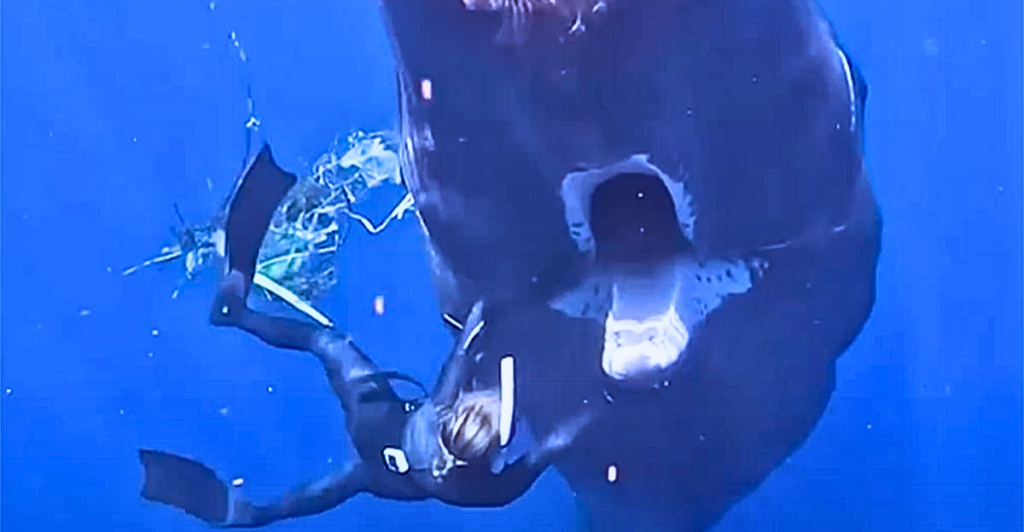
Divers off the coast of the Red Sea witnessed a remarkable moment when they encountered a sperm whale entangled in fishing debris. The majestic creature appeared to seek their help, a poignant reminder of human impact on marine life. This encounter has drawn attention to marine animals’ challenges in increasingly polluted oceans. Such moments highlight the urgent need for sustainable practices to protect these gentle giants and their underwater world.
The Discovery
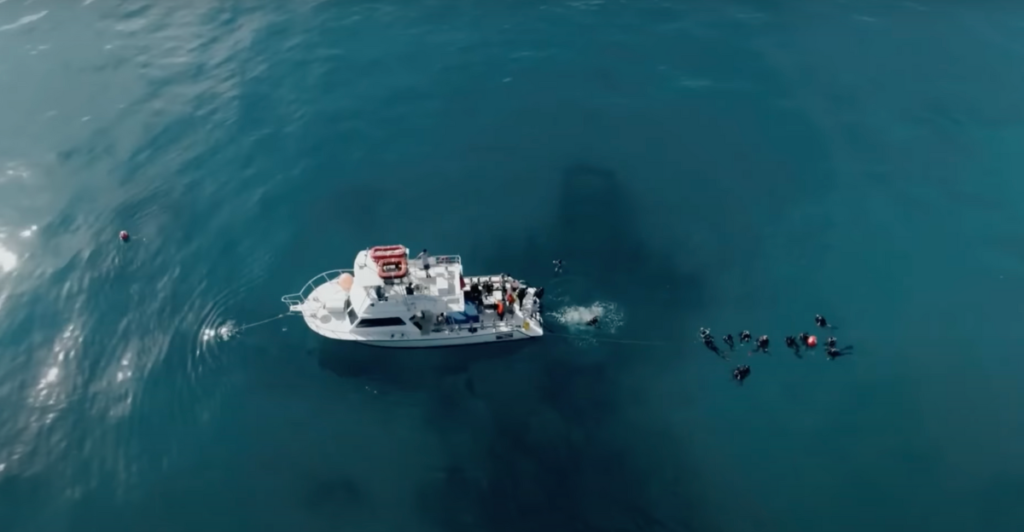
While on a routine dive, a group of divers noticed an unusual movement below the surface. Upon closer inspection, they found a sperm whale struggling with discarded fishing nets wrapped around its mouth. The massive creature’s movements suggested distress, prompting the team to act quickly. Encounters like this underline the growing issue of ghost gear fishing equipment lost or discarded in the ocean, threatening marine ecosystems worldwide.
Daring Rescue Mission
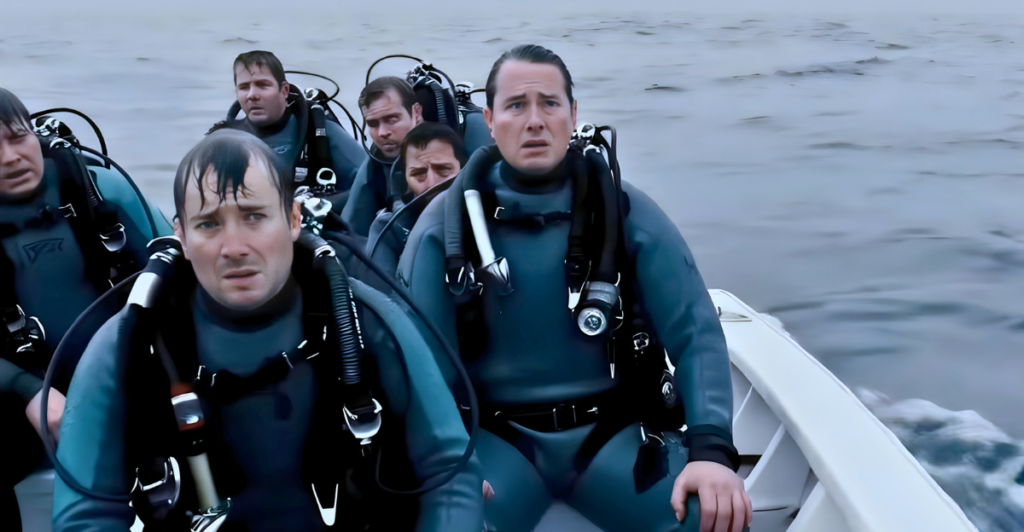
Armed with cutting tools, the divers carefully approached the sperm whale. They needed precision and calmness to avoid causing harm or stress to the whale. The operation took hours, with the team cutting through tangled nets and ropes. The whale cooperated in a heartwarming display of trust, holding still as the divers worked. Such rescues showcase humanity’s potential to repair some of the damage done to marine environments.
The Power of Teamwork
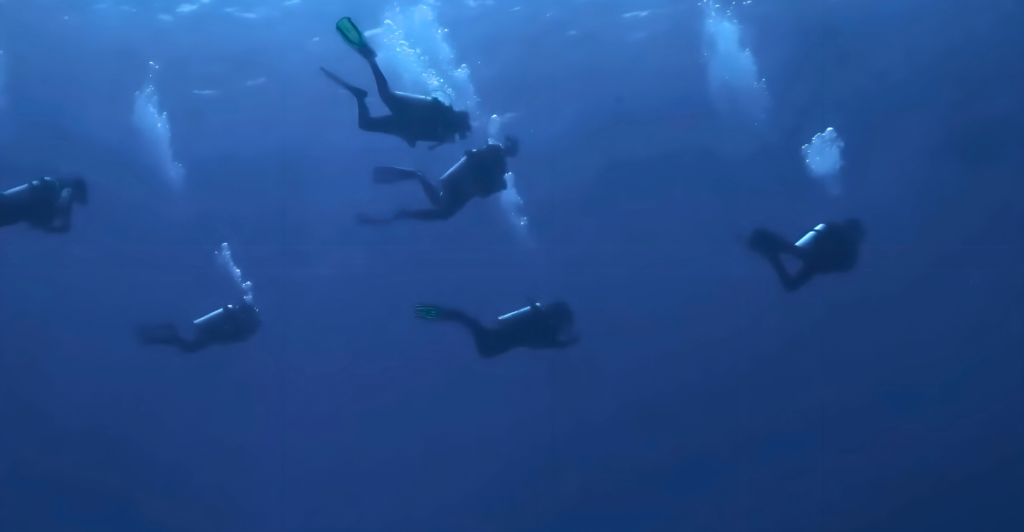
Rescuing a whale isn’t a solo mission. The divers relied on each other’s expertise and support to ensure the animal’s safety and their own. One diver focused on cutting the debris, while others kept an eye on the whale’s movements and maintained communication. Their synchronized efforts highlight the importance of teamwork in conservation efforts, proving that collective action can lead to extraordinary outcomes for marine life.
A Whale’s Trust
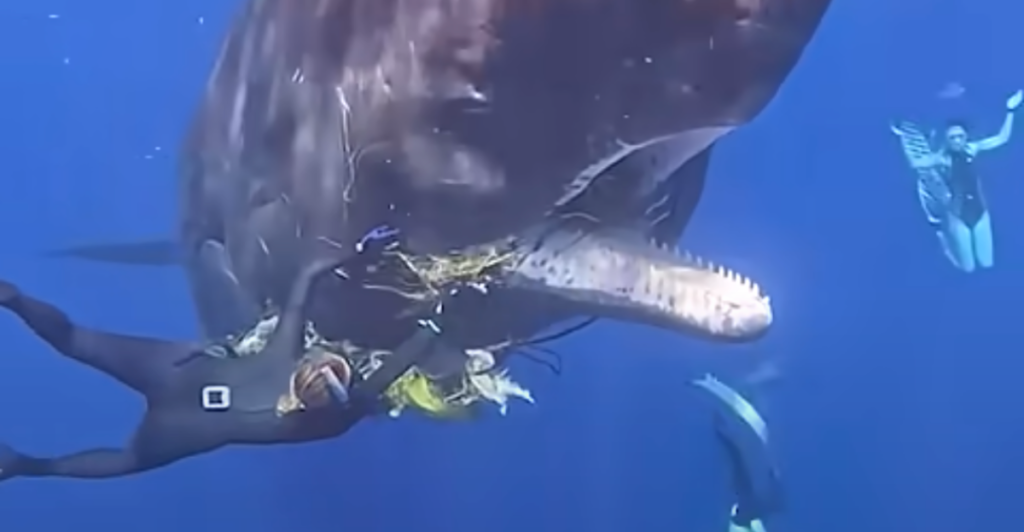
The whale’s behavior was one of the most moving aspects of this rescue. It remained calm, almost as if it understood the divers were there to help. Scientists suggest that whales, known for their intelligence, may recognize human intentions in such situations. This extraordinary interaction illustrates the deep connection between humans and wildlife and raises awareness of the need to coexist respectfully with marine creatures.
Ghost Gear: A Growing Threat
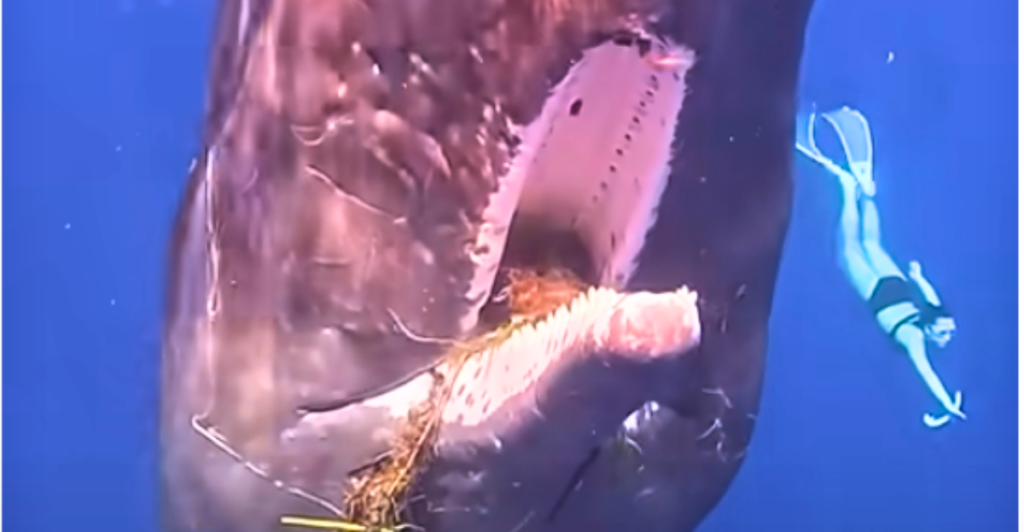
The tangled debris removed from the whale’s mouth is part of a bigger problem. Ghost gear accounts for 10% of all ocean plastic waste and poses serious risks to marine animals. Whales, turtles, and other sea creatures often become entangled, leading to injuries or death. Addressing this issue requires better waste management, fishing practices, and global cooperation to clean up existing debris and prevent further pollution.
The Role of Sperm Whales
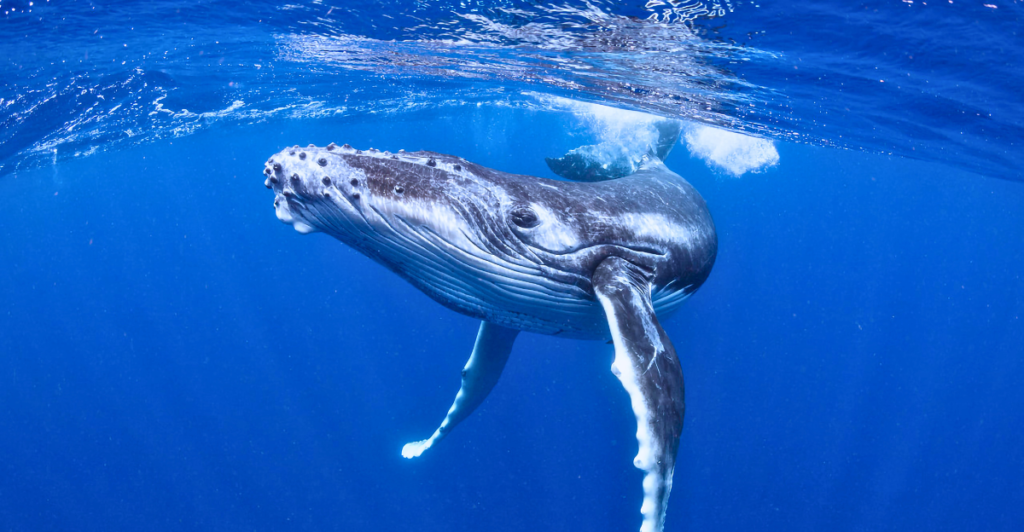
Sperm whales, the largest toothed predators, are crucial in maintaining ocean health. They help regulate marine ecosystems and even contribute to carbon cycling by fertilizing phytoplankton through their waste. Protecting these gentle giants is essential for biodiversity and combating climate change. Every effort to save a sperm whale has ripple effects on the entire ocean ecosystem, underscoring their importance.
The Ocean’s Silent Cry
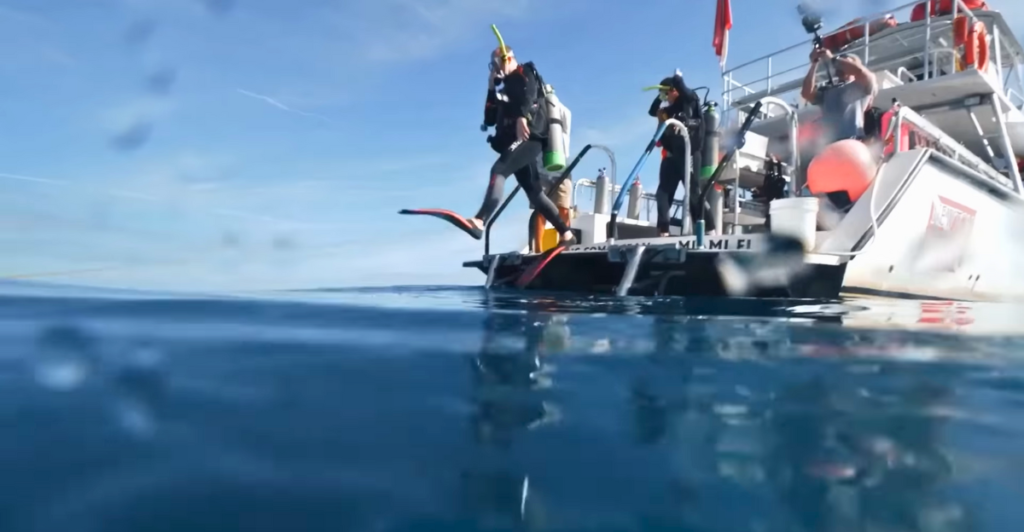
This rescue is a stark reminder of the impact of human activity on marine environments. Oceans are vital to life on Earth, yet they are threatened by pollution, overfishing, and climate change. The sperm whale’s ordeal symbolizes the silent suffering of countless marine creatures. Stories like this inspire action and advocacy for cleaner, healthier oceans, a legacy we can leave for future generations.
Raising Awareness
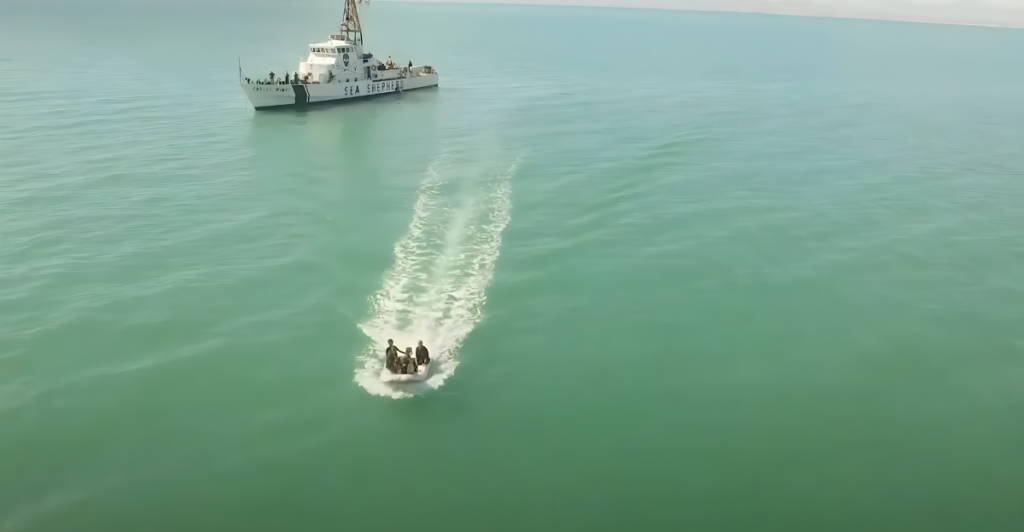
The divers shared their experiences online, sparking global attention and discussions about ocean conservation. Images and videos of the rescue went viral, inspiring many to learn more about marine debris and its effects. Raising awareness is the first step in addressing environmental challenges. Stories of courage and compassion like this one motivate individuals and communities to contribute to protecting the planet’s waterways.
Community-Driven Solutions
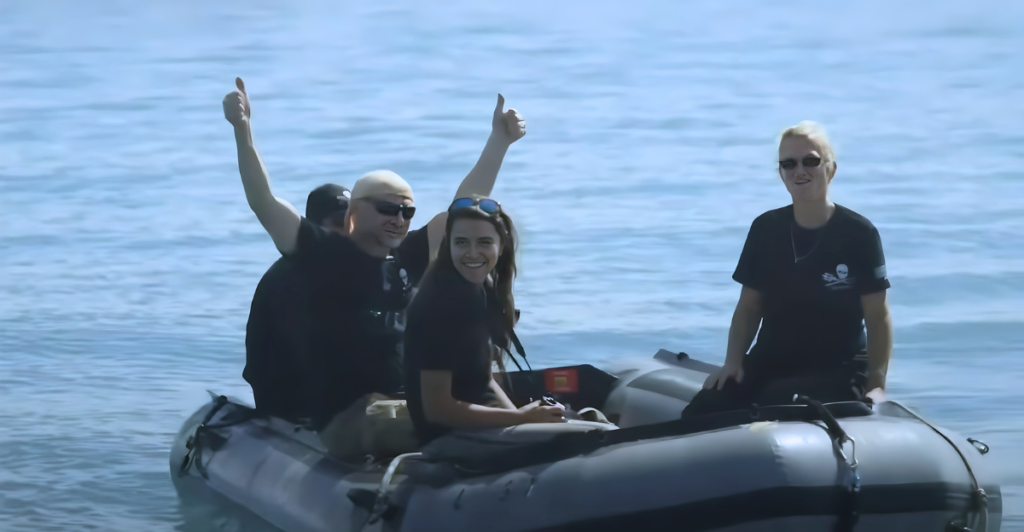
Local communities and organizations play a vital role in tackling ocean pollution. Initiatives such as beach cleanups, recycling programs, and educating fishermen about proper waste disposal are making a difference. Governments and NGOs also implement stricter regulations and create innovative technologies to prevent ghost gear. Collaborative efforts between individuals, industries, and policymakers are key to ensuring sustainable solutions for ocean conservation.
The Importance of Citizen Divers
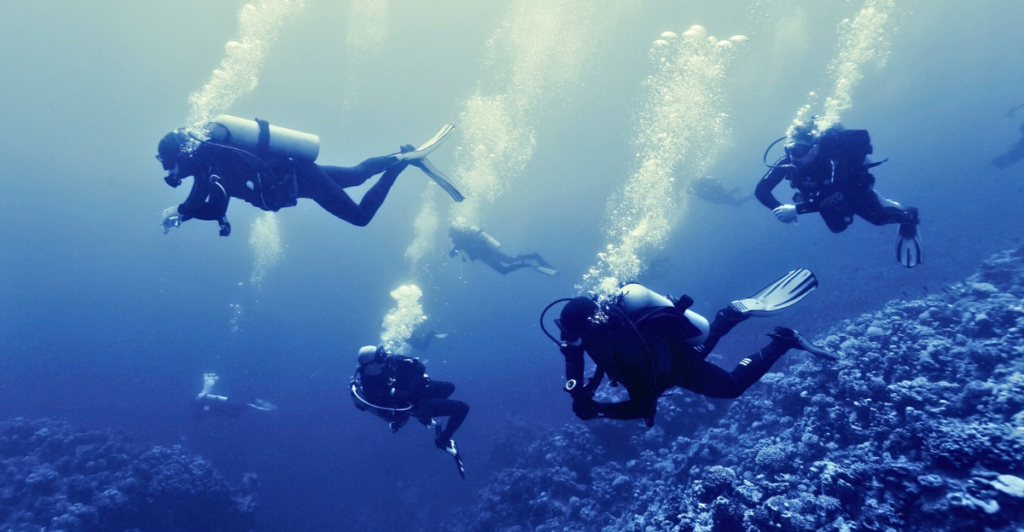
Recreational divers are becoming unexpected heroes in marine conservation. Equipped with training and a passion for the sea, they often spot and report environmental hazards. Some even volunteer with organizations dedicated to removing debris and rescuing marine animals. The divers who saved the sperm whale are part of a growing movement of citizen divers making a tangible impact, proving that anyone can contribute to protecting our oceans.
What You Can Do
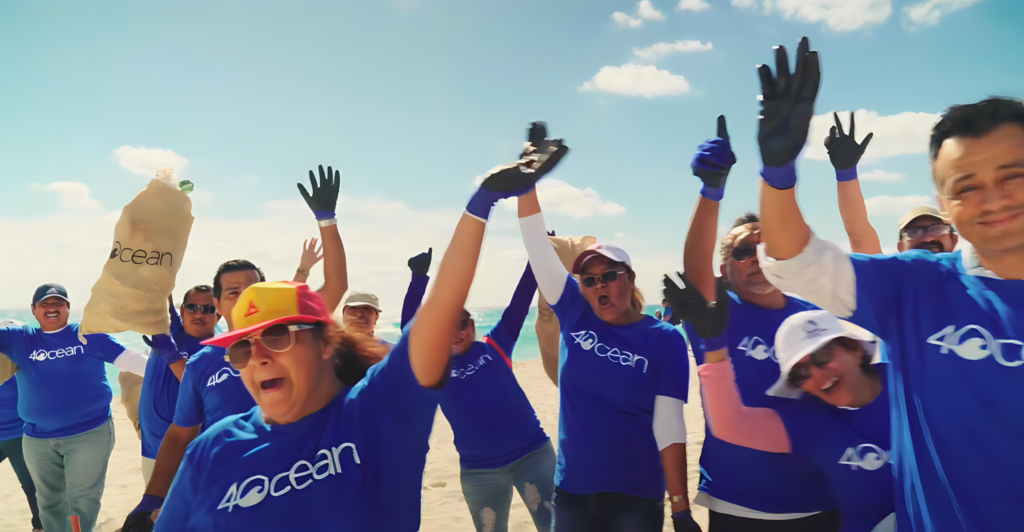
Everyone can contribute to ocean conservation. Reduce single-use plastics, participate in cleanup drives, and support organizations working to protect marine life. Make sustainable seafood choices and advocate for policies that address ocean pollution. Educating yourself and others about marine ecosystems’ challenges is another powerful way to contribute. Small actions collectively lead to significant change in safeguarding our oceans for future generations.
A Wake-Up Call
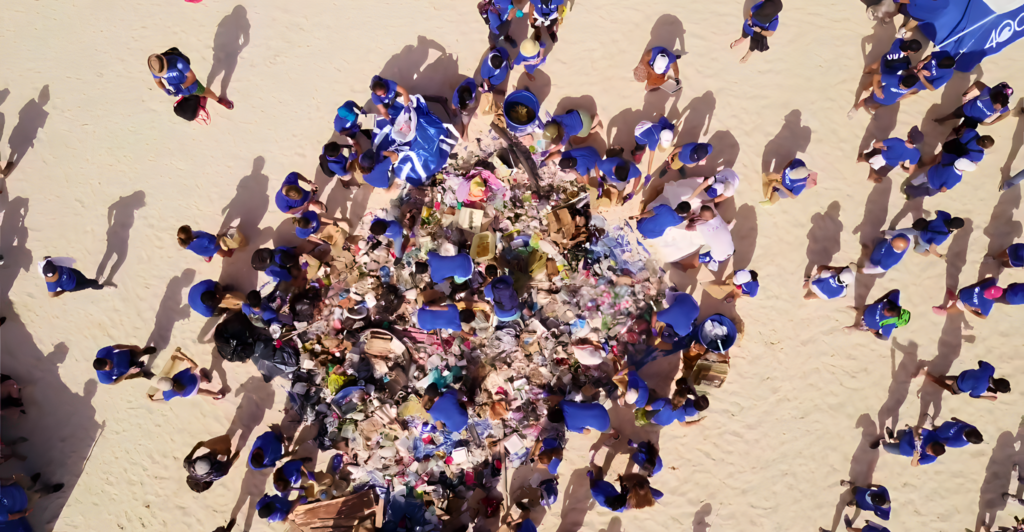
The rescue of the sperm whale serves as a powerful reminder of the urgency to protect marine environments. It’s a call to action for governments, industries, and individuals to address pollution and its devastating impact on ocean life. While this whale’s story had a happy ending, countless others continue to suffer. Let this moment inspire efforts to preserve the oceans and the incredible creatures that call them home.
Stay connected with us for more stories like this! Follow us to get the latest updates or hit the Follow button at the top of this article, and let us know what you think by leaving your feedback below. We’d love to hear from you!







